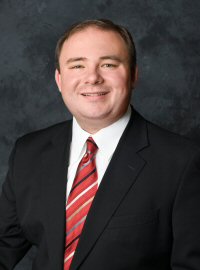PA lawmaker eyes higher cigarette tax for property tax relief

By Andrew Staub | PA Independent
All the talk about hiking the cigarette tax in Philadelphia to help fund city schools has some state lawmakers wondering, what about the rest of the state?
State Rep. John Lawrence, R-Chester, wants to take the concept of the vice tax and also apply it to the 66 counties outside Philadelphia. He’s circulating a proposal to levy a higher tax on cigarettes everywhere except Philadelphia to fund property tax rebates for homeowners who are older than 65 and make less than $35,000 a year.
While Lawrence has supported property tax reform — including legislation that would eliminate them — the broad-based approach he’d like to see happen for all Pennsylvanians hasn’t materialized this year.
RACING THE CLOCK: State Rep. John Lawrence wants to fund property tax relief for low-income seniors with a higher cigarette tax, but there’s not much time left to make it happen.
“I’m not going to sit around and wait for a perfect plan when I see an opportunity to move forward, to do something for seniors who are most at risk for losing their homes,” he said.
The state already has a $1.60-per-pack cigarette tax. Lawrence’s legislation would add 80 cents to packs sold outside Philadelphia to fund his property tax relief idea. State lawmakers are also considering separate legislation that would help fund the School District of Philadelphia with a $2-per-pack tax on cigarettes sold in the city.
District officials and Philadelphia Mayor Michael Nutter have said the tax is necessary to help fill a deficit that’s threatening to delay the start of the school year.
Lawrence’s proposal comes after two York County Republicans, state Rep. Seth Grove and House Majority Whip Stan Saylor, released a joint statement late last month that connected the Philadelphia cigarette tax issue to property tax reform.
Under Saylor and Grove’s reasoning, a higher cigarette tax in Philadelphia would help stave off another property tax increase, but would leave out the rest of Pennsylvania.
“By ignoring the remaining 99 percent of Pennsylvania, we are not providing the relief homeowners are demanding,” Saylor and Grove said. “This session should not be defined as ‘missed opportunities.’”
Lawrence sees an opportunity with the cigarette tax, which began as a temporary emergency tax in 1935 and was made permanent in 1951, according to the state Department of Revenue.
That tax brought the state more than $1.02 billion in fiscal year 2012-13. Lawrence sees the potential for much more, saying his proposal could bring in $382 million more, enough to reduce property taxes for those eligible by about 82 percent when coupled with an existing rebate program funded with lottery dollars.
Eligible homeowners with a $3,500 tax bill would receive a total refund of $2,870, according to Lawrence’s memo. The rebates would not extend to Philadelphia.
While Lawrence’s proposal sounds like a great deal for older homeowners living on a tight budget, there’s skepticism about Lawrence’s idea among property tax reform advocates.
David Baldinger, spokesman for the Pennsylvania Coalition of Taxpayers Association and coordinator of Pennsylvania Taxpayers Cyber Coalition, believes elected officials will continue to increase property taxes as long as they remain in place, even if relief is granted through another funding source.
“At the very best, it’s just temporary relief,” Baldinger said. “It doesn’t solve the problem.”
A Grove bill that passed the House last year would give school districts the power to phase out or reduce property taxes through an elimination tax, but Baldinger favors Senate Bill 76, which would eradicate the school property tax. That legislation failed in the House and has stalled in committee in the Senate.
Even if the legislation was revived, dumping a $12 billion revenue stream means Pennsylvanians would pay more elsewhere — namely a higher state income tax and an expanded and higher sales tax.
Frank Sorick, president of the Wilkes-Barre City Taxpayers Association in Luzerne County, still thinks that’s a fairer approach. He’s also wary of Lawrence’s proposal, saying it’s hard to trust lawmakers after the past promise of big property tax reductions through gambling revenue fell flat.
“I’m leery whenever lawmakers promise us one of those pie-in-the-sky schemes they come up with,” Sorick said.
Lawrence acknowledged gambling revenue relief was “clearly overpromised,” but said his proposal deals with a smaller subset of residents and therefore should be easier to tackle.
The biggest obstacle will likely be time. The House is scheduled to meet a dozen more days before breaking Nov. 12. The Senate has only 11 scheduled session days before then.
That leaves Lawrence’s proposal with little time for consideration, and any legislation that isn’t passed by the end the current session — which Lawrence said officially ends Nov. 30 — will die and have to start anew in January.
An uphill battle won’t stop Lawrence from pushing the higher cigarette tax to fund property tax relief.
“I’m looking for an opportunity to move it down the field,” he said, “and this looks like an issue that has garnered support.”
Staub can be reached at Andrew@PAIndependent.com. Follow @PAIndependent on Twitter for more.







